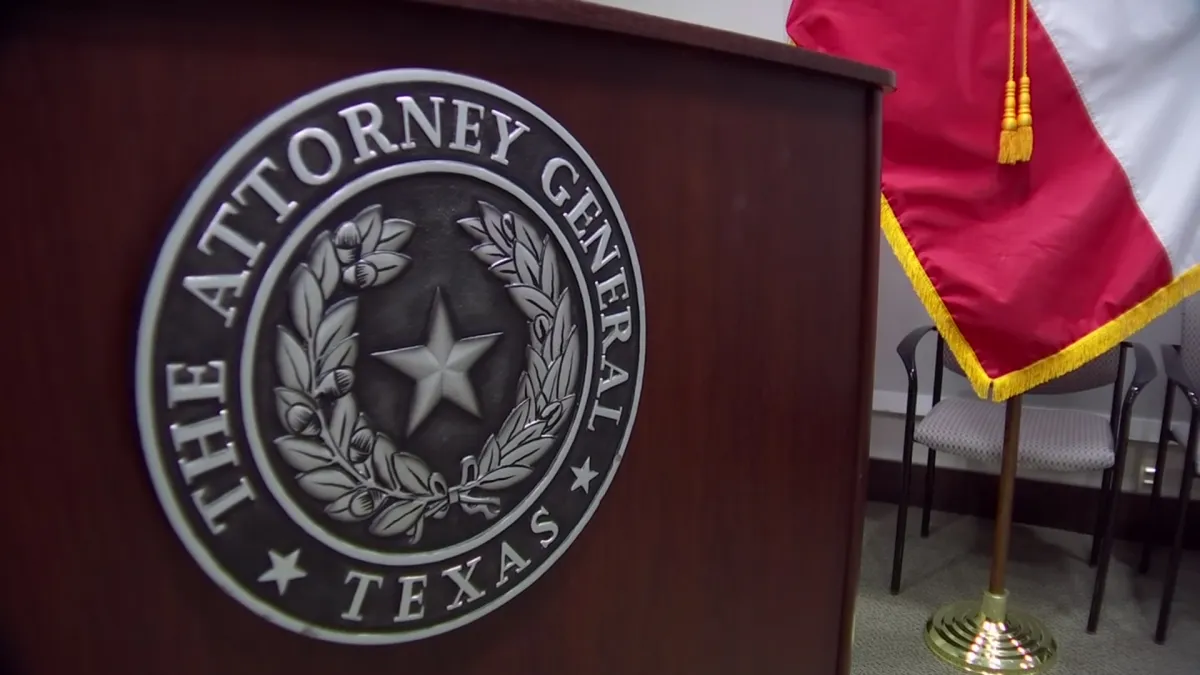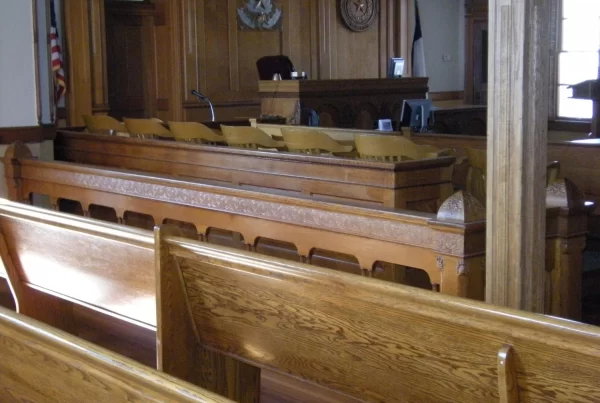Overview
The Texas Attorney General (AG) is the chief legal officer of Texas and his office is responsible for representing the state in civil litigation.1 The Attorney General’s Office also advises other state agencies on legal matters, prosecutes consumer fraud cases, and enforces child support orders.
The Texas Attorney General has no general authority in criminal cases. Instead, that power belongs to locally elected county and district attorneys, which have primary jurisdiction to prosecute most criminal offenses.
Elected Attorney General
The Attorney General is directly elected by the voters and holds a four-year term. He is one of six officers named in the Texas Constitution as constituting the state’s Executive Department, also called the “plural executive.”
The current Attorney General is Ken Paxton, a former legislator. He was first elected in 2014 and won reelection in 2018 and 2022
| Candidate | Party | Vote | % |
|---|---|---|---|
| Ken Paxton | Republican | 4,278,986 | 53.4 |
| Rochelle Garza | Democrat | 3,497,267 | 43.7 |
| Mark Ash | Libertarian | 233,750 | 2.9 |
Structure of the Agency
There are more than 40 administrative divisions within the Office of Attorney General, including a General Counsel Division, Child Support Division, Open Records Division, several criminal justice divisions, and civil litigation divisions specializing in different areas of law, including bankruptcy, Medicaid fraud, antitrust, consumer protection, and tax litigation.2
Limited Role in Criminal Prosecutions
Although the Attorney General has no general prosecutory power, it has the legal authority to act “with the consent of the appropriate local county or district attorney” in cases involving crimes committed on state property or involving the unlawful use of state funds.3

Law Enforcement Division
In addition to its litigation role, the Attorney General’s Office has a Law Enforcement Division employing sworn Texas peace officers (state police). Their role is to investigate public corruption, human trafficking, money laundering, mortgage fraud, and election violations.4
The Law Enforcement Division also investigates cybercrimes including online solicitation of minors, child pornography, and identity theft. They also locate and apprehend convicted sex offenders who have failed to comply with the state’s sex offender registration requirements.
The Law Enforcement Division is the state liaison to Interpol (International Criminal Police Organization) and the U.S. Treasury’s Financial Crimes Enforcement Network.
Solicitor General of Texas
The Solicitor General of Texas is the top appellate lawyer in the Office of the Texas Attorney General. The solicitor general position is modeled on a federal position of the same name and handles cases in the United States Supreme Court, the Supreme Court of Texas, the United States Court of Appeals for the Fifth Circuit, and the state appellate courts.
Since its creation in 1999, the position has been held by a number of lawyers who went on to more senior positions in government, including U.S. Senator Ted Cruz, Fifth Circuit Judges Andy Oldham, S. Kyle Duncan, and James Ho, and Texas Supreme Court Justice Jimmy Blacklock.
Legal Opinions
Attorney General opinions are a formal mechanism for resolving thorny legal questions within the Texas government, without resorting to a court case.
An attorney general opinion is a written interpretation of existing law. Though technically non-binding, attorney general opinions tend to be influential and are generally complied with.
These legal opinions don’t necessarily reflect the personal views of the Attorney General himself, but are produced by a dedicated Opinion Committee within the OAG.
State law governs the process for requesting attorney general opinions.5 Only certain officials may request formal OAG opinions, including the governor, agency heads, public university trustee, legislative committees, and county attorneys.
Source and Citations
- Texas Constitution Article IV, § 22 and Texas Government Code § 402.021 ↩︎
- “All Divisions — Ordered,” OAG website. ↩︎
- Texas Penal Code § 1.09 ↩︎
- “Law Enforcement Division,” OAG website. ↩︎
- Texas Government Code §§ 552.301–552.308 ↩︎



